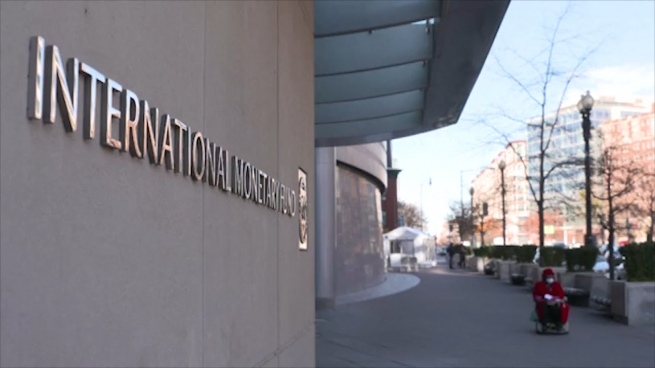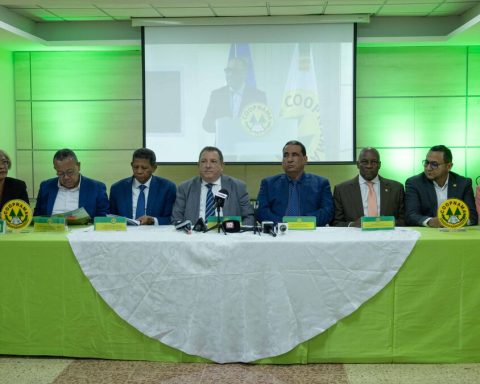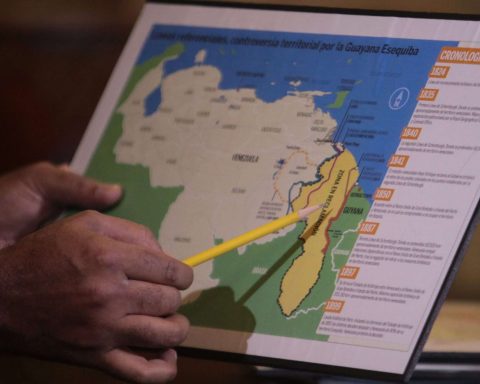Once the bill containing the refinancing program agreed with the International Monetary Fund for the debt of US$ 45,000 million contracted in 2018 is approved by the Senate, the board of directors of the multilateral organization (board) must ratify the understanding so that it can be formally launched the new plan, which will run until 2034 and includes fiscal, monetary and inflation goals.
IMF spokesman Gerry Rice He said that the body is “attentive” to the evolution of the legislative treatment of the agreement and that once approved and promulgated by the Executive Powerthe mechanisms for the Board meeting to take place will be put in place.
Rice recalled that the IMF has stated on several occasions that it will do “everything possible” to comply with the times related to the agreement, because next week there will be interest and principal maturities that add up to a total of around 2,800 millions of dollars.
Specific, Argentina must pay 950 million dollars on March 21 in interest, and another 1,850 million dollars the following day, 22, for capital maturities.
Regarding the agreement, to access the refinancing of capital maturities for US$ 45,000 million taken during the administration of Mauricio Macri, the Government made explicit its decision to “maintain the ongoing economic and social recovery and, at the same time, reinforce the stability and continue addressing the challenges to sustain growth in the long term,” according to the memorandum of understanding reached with the staff of the multilateral organization.
The program will have 10 reviews that will be quarterly and the first disbursement will be US$9.8 billion, which could be enabled even next week, once the board of directors gives the green light to the agreement between Argentina and the IMF.
Regarding the key points of the understanding, it is highlighted that during the first year there will be net financing from the IMF equivalent to 0.7% of GDP, to recover the reserves.
To which would be added an extra financing of 2,600 million dollars from other multilateral organizations, to help close this year’s fiscal pothole.
Among the guidelines of the agreement, another strong point is that it provides for a rise in social spending and for infrastructure, while it does not contemplate the implementation of labor and pension reforms, which removes the stigma of “adjustment” that traditionally carried the agreements signed by Argentina with the IMF in the past.
In this sense, there will be more funds for social inclusion and more investment in public works, which will exceed the equivalent of 2% of GDP.
The agreement sets a package of quantitative goals to activate quarterly disbursements, which includes the following points:
– Fiscal account: a reduction in the fiscal deficit with primary deficit targets of 2.5% of GDP in 2022, 1.9% of GDP in 2023 and 0.9% in 2024;
– Reserves: the external current account is projected to remain in surplus. “This, together with an increase in foreign direct investment (FDI) and the entry of net official flows, will facilitate an accumulation of net reserves of USD 15,000 million throughout the program) and will reinforce the crawling peg regime. ;-
– Decrease in the monetization of the deficit to 1% of GDP in 2022.
The government also pledged to “durably reduce persistently high inflation through a multi-pronged strategy that includes a combination of fiscal, monetary, and price and income policies,” among the policies highlighted.
In this framework, by 2022 inflation is expected to be within a range of 38% to 48%; by 2023 at 34%/42%; and for 2024, the last year of the initial program with the IMF, in a range of between 29% and 37%, under a gradual scheme.
On the other hand, the national government aims to “reduce energy costs and improve the targeting of subsidies”, while maintaining “the protection of the lowest-income households”, according to the objectives of the new memorandum of understanding with the IMF
In this sense, there will be in the short term a “reduction of the energy subsidies foreseen in our base scenario for 2022, guided by criteria of equity and distributive justice,” it was specified.
The new rate segmentation scheme is made explicit, which provides for the elimination of electricity and gas subsidies for the 10% of consumers with the greatest ability to pay as of June 1.
Other relevant parameters of the agreement go through the definition that by the end of 2022 the Government will design a roadmap to relax capital controls, together with the implementation of an evaluation of social support programs, the reinforcement of legislation against money laundering and measures to improve tax collection, among which are a real estate revaluation.

















